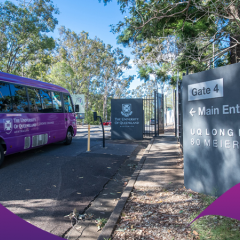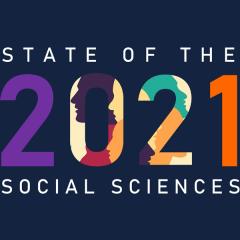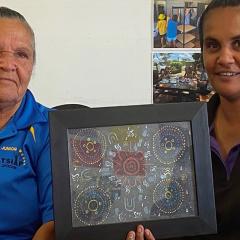The State of Early Learning in Australia 2019 report, written by ISSR researchers Professor Karen Thorpe and Dr Sally Staton, was launched at Parliament House in Canberra on Monday 25 November. It shows sharp differences in access to affordable, high-quality early learning across the country and emphasises the need for strong federal oversight.
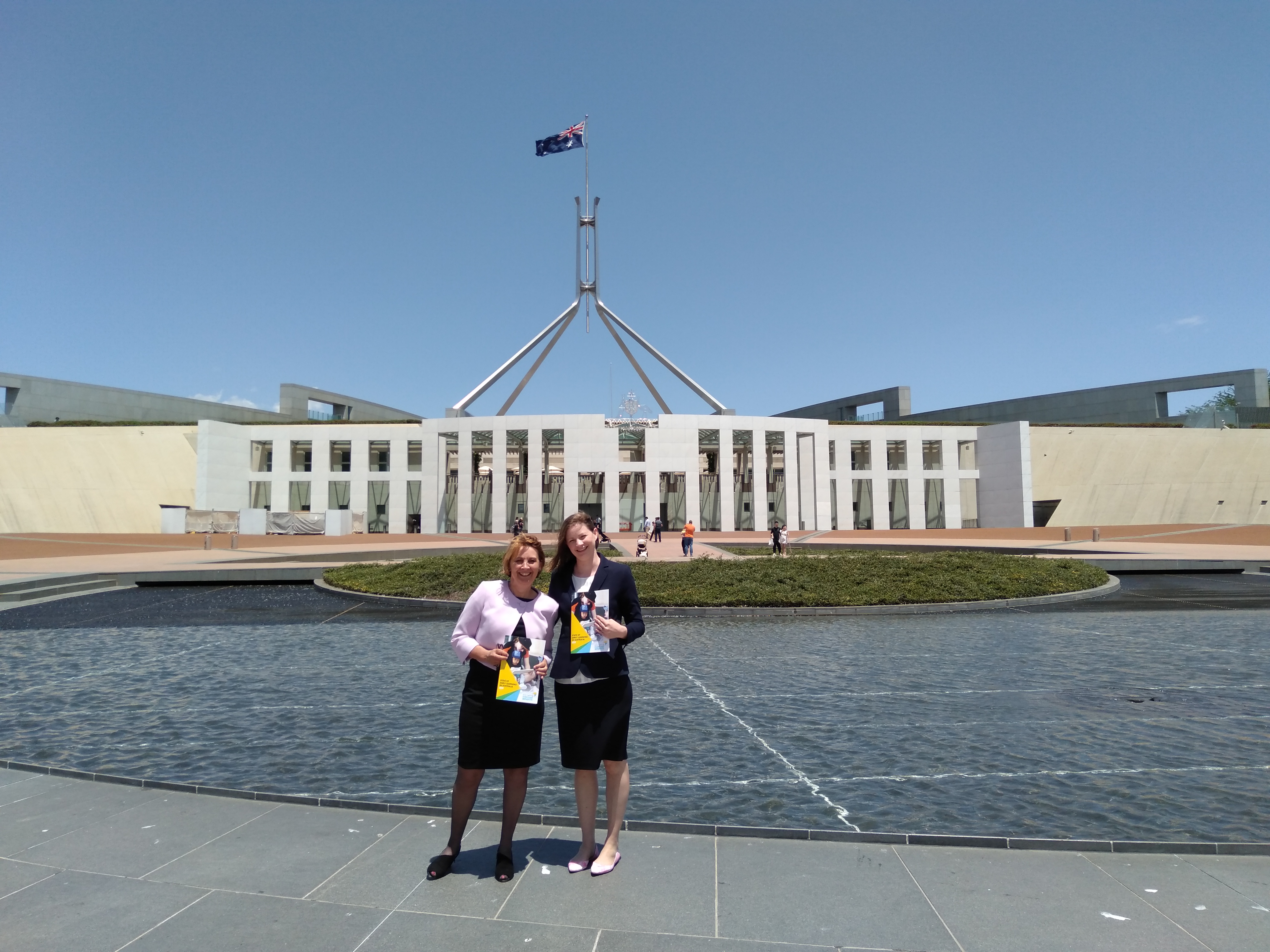
Professor Thorpe and Dr Staton were lead writers of the report published by Early Learning: Everyone Benefits, a national campaign supported by a coalition of early childhood and parent peak bodies, providers, community organisations and individuals.
The launch of the report was attended by Education Minister Dan Tehan, Shadow Minister Amanda Rushworth and numerous other MPs and early childhood sector representatives. The report sets out the goals for the nation in advancing young children’s learning and development, identifies the key performance indicators against which Australia’s progress should be measured, and identifies target areas for improvement.
The State of Early Learning in Australia 2019 report highlights the uneven access to high-quality early learning across Australia. Some young children are missing out based on the state, territory or region they live in, with the report identifying significant pockets of unmet need and problems associated with affordability.
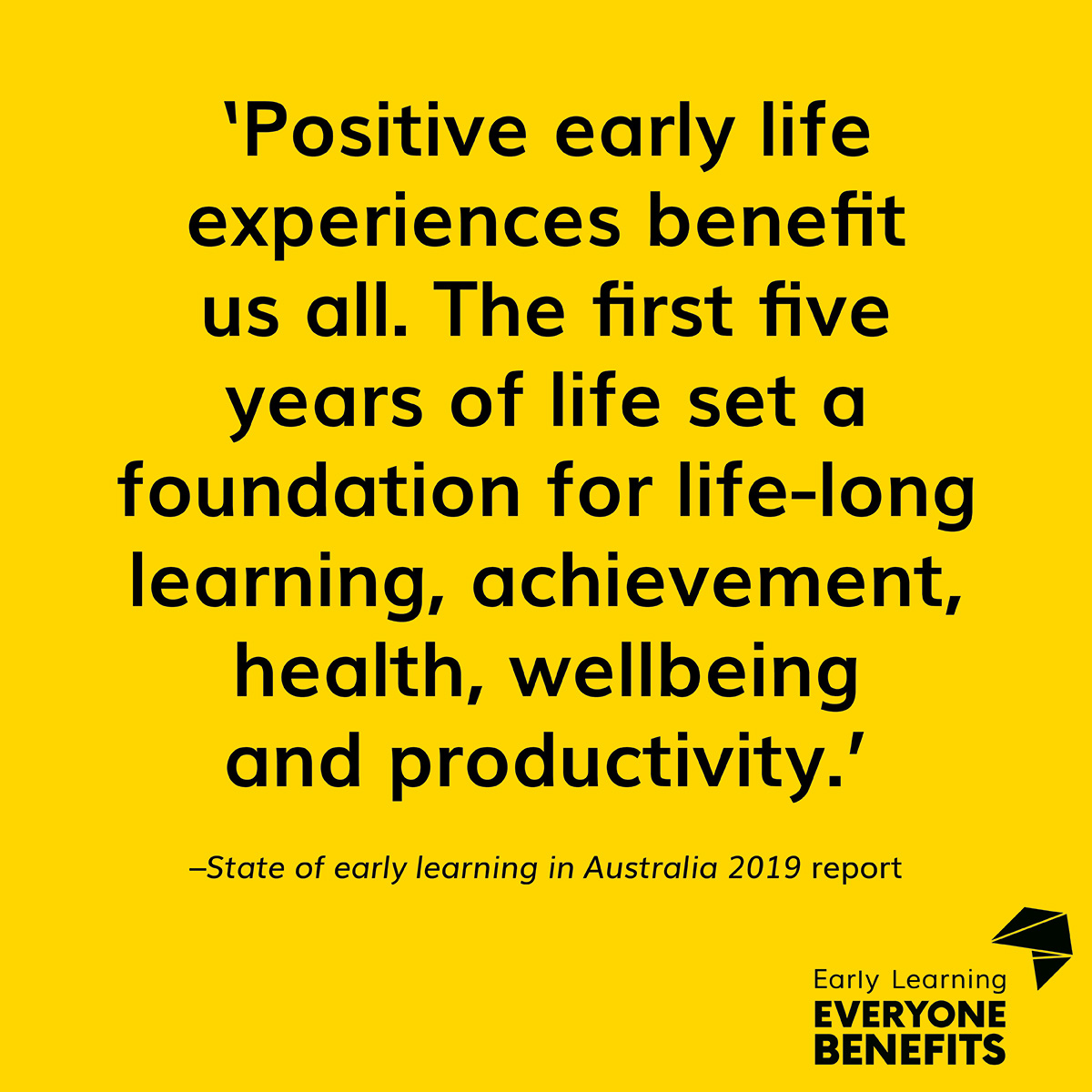 “Just a 1.75 per cent increase in the federal government’s spending on education* would bring Australia in line with other leading English-speaking countries and deliver outcomes that benefit our nation throughout each child’s educational journey and beyond,” said Early Childhood Australia (ECA) CEO Samantha Page.
“Just a 1.75 per cent increase in the federal government’s spending on education* would bring Australia in line with other leading English-speaking countries and deliver outcomes that benefit our nation throughout each child’s educational journey and beyond,” said Early Childhood Australia (ECA) CEO Samantha Page.
Chair of Goodstart Early Learning, Michael Traill AM, noted that while much of the rest of the world is ramping up investment in early learning, the report shows Australia is at risk of falling behind, with Australia’s investment in early learning below the OECD average. “This report is a wake-up call that more needs to be done to give Australia’s children the best possible start in life. It should be compulsory reading for every senior government official and business leader in the country,” Mr Traill said.
Professor Thorpe said immediate action is needed to address inequity of access to high-quality early learning and work conditions of early educators as outlined in the report.
“While young children and their parents are the immediate beneficiaries of services that support children’s early learning, in fact all Australian’s benefit,” Professor Thorpe said. “Most immediately, young children benefit from early learning by developing the cognitive, social and emotional skills to help them thrive every day. Beyond, the benefits for children include better preparedness at school entry, improved achievements in school, and greater life chances and choices past the school years.”
“There are also significant benefits for society and the economy seen in improved workforce participation of parents and improved economic productivity and social inclusion of children who have attended early learning services.”
Professor Thorpe said equity of access and attendance remains a big concern. “Aboriginal and Torres Strait Islander children are less likely to attend a preschool program then their non-Indigenous peers. Children from low-income areas, of non-English-speaking backgrounds and who have a disability are also under-represented. The cost of attending an early education and care program is disproportionately high for low income families after subsidy and the number of these families who have access to services that are exceeding the National Quality Standard is lower.” 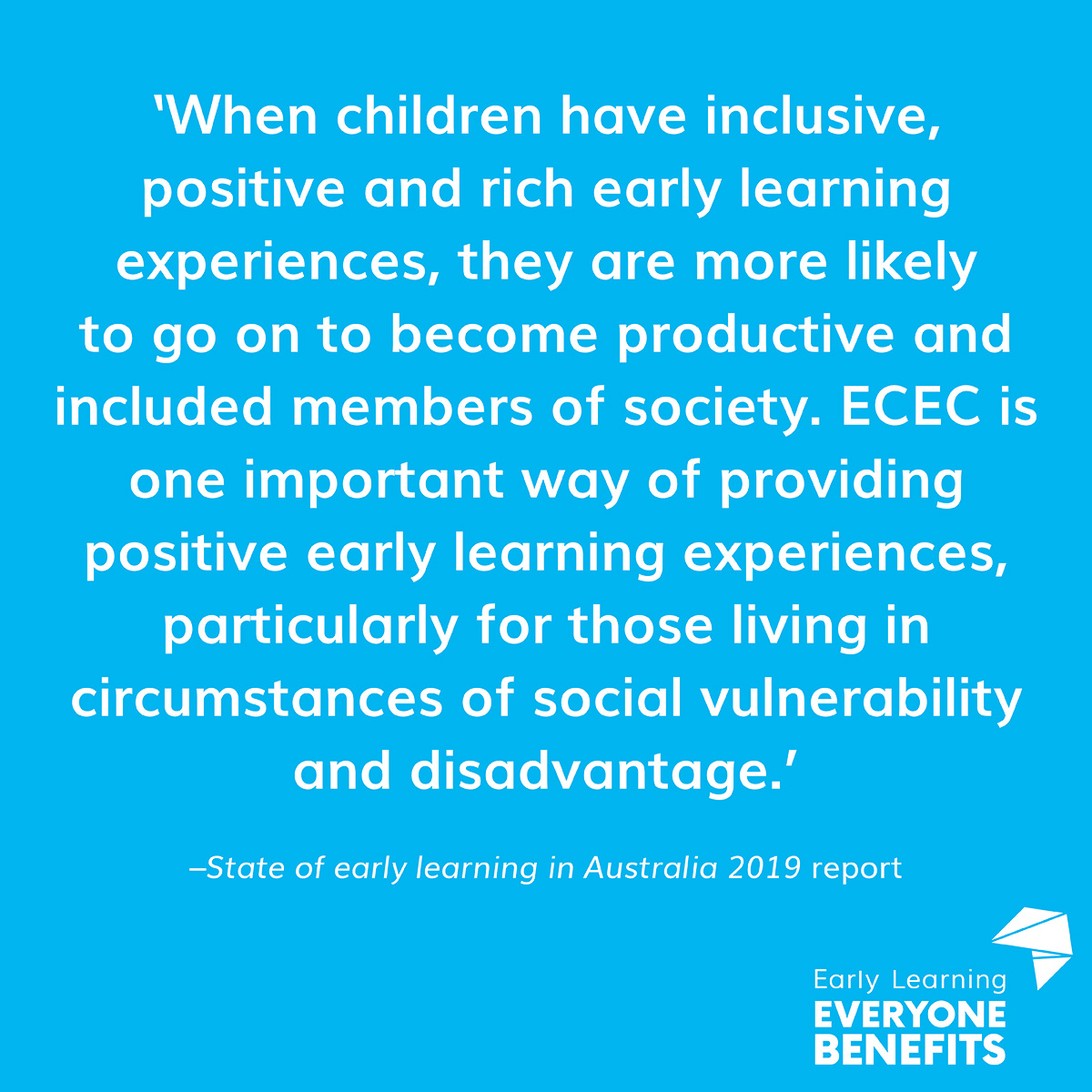
A major crisis is looming in providing adequate numbers of trained early childhood educators, Professor Thorpe warned. The effectiveness of early education is dependent on the availability of well-trained educators but this may not be sustainable. Low wages coupled with unfavourable work conditions and high administrative demands have resulted in high staff turnover with one in five identifying an intent to leave the sector, and in remote areas turnover rates are almost 50 per cent.
“The focus for Australian Governments and the organisations that provide Australia’s early education and care services for the next decade is growing and sustaining a professional and well supported workforce and ensuring that the highest quality and appropriate forms of provision reaches those who most benefit – those who are marginalised and those who live in circumstances of disadvantage.”
* This refers to federal spending on all education, from early childhood to tertiary level.
Read the State of Early Learning in Australia 2019 full report and summary here.

